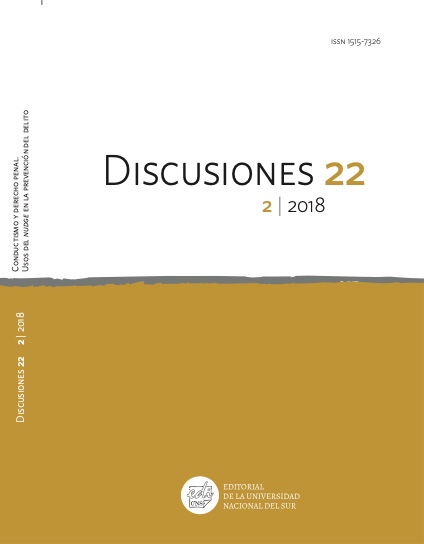Introduction. Behavioural Economics and Criminal Law: Nudges, Deterrence, and Interdisciplinarity
DOI:
https://doi.org/10.52292/j.dsc.2018.2222Keywords:
Behavioral economic analysis, Criminal law, Nudge, Deterrence, Interdisciplinary minimalismAbstract
This introduction to this issue of Discusiones discussing Harel and Teichman’s paper has two goals. First, it gives a brief overview of the main themes touch upon by the various contributions. Second, it puts the contributions in a broader context. To this end, some considerations about the origins of behavioural research and its relation with mainstream economics and economic analysis of law are formulated. Special attention is given to the concept of nudge. Then, Harel and Teichman’s account of what the behavioural economics analysis of criminal law is is collocated within the literature, to point out that they have a remarkably narrow account of the field. The introduction concludes with a methodological call for ‘interdisciplinary minimalism’, a methodology which has been arguably important to the establishment of behavioural economics. Interdisciplinary minimalism can help the behavioural economics analysis of criminal law to thrive by calling scholars from different fields to join forces by reflecting on the division of labour that can advance our understanding of criminal law and its policy.
Downloads
Published
How to Cite
Issue
Section
License
Discusiones does not withhold rights of reproduction or copyright. Consequently, authors may share the final versions of publications.


